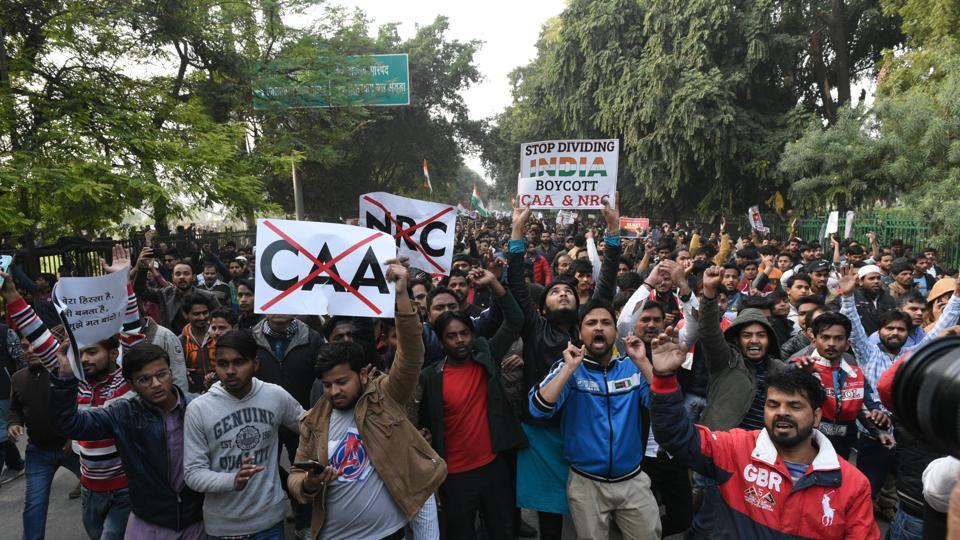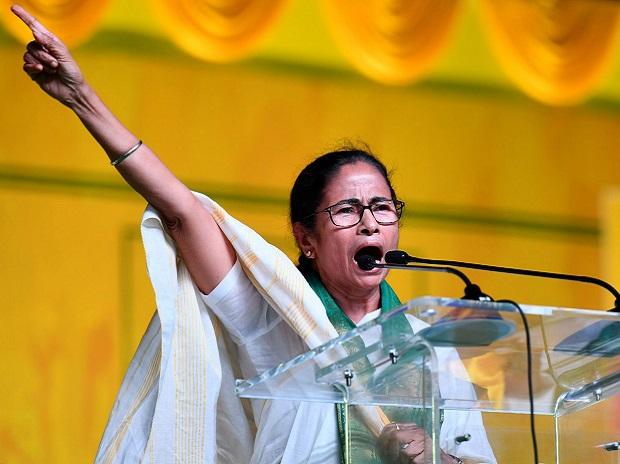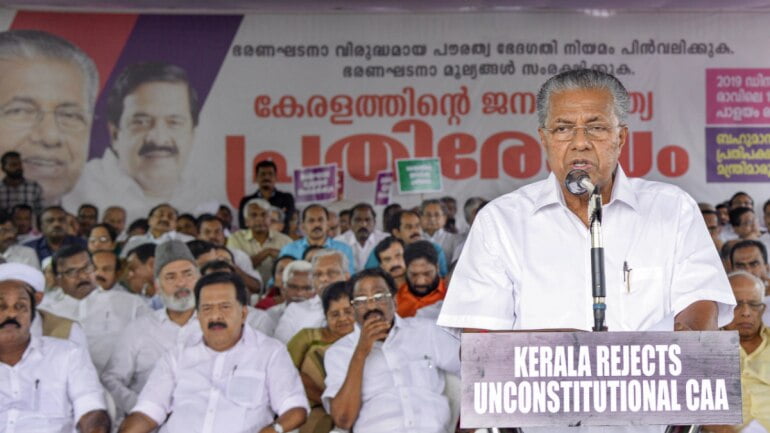India, at present, is witness to huge, nation-wide protests against the Citizenship Amendment Act (CAA) and the National Register of Citizens (NRC). People across India are standing in solidarity with each other in the face of the draconian legislations passed by the Modi government.

The CAA enables the migrants who have illegally entered India from the countries of Pakistan, Bangladesh and Afghanistan, and who have stayed in India for five years, to receive Indian citizenship. However, what the Act also does is define which migrant can be granted citizenship. It does so on the basis of religion, which means, Hindu, Christian, Buddhist, Jain, Sikh and Parsi migrants can be granted citizenship. This Act, combined with the proposed nation-wide National Register of Citizens (which had already invoked huge protests in Assam), is an exclusionary tool which discriminates against Muslims, and is thus, definitely destructive for the secular fabric of India.
Thus, it is not at all difficult to see through the BJP’s façade of ‘compassion’ and ‘goodwill’ towards the migrants. Public sentiment against the legislations resounded far and wide. In fact, many states have refused to implement CAA-NRC. As of 4th January, 2020, according to an article by The Quint, twelve states have refused to implement CAA-NRC.
West Bengal was the first state to openly condemn the exclusionary legislation, and to resist its implementation, followed by Kerala and Punjab. Mamata Banerjee, the Chief Minister of West Bengal, had openly declared that her government will not implement the CAA in Bengal, daring the Modi government to “fell” her government, or imprison her. She had also put a stay on the work being done towards the National Population Register (NPR) amid public concerns that the NPR will eventually lead to the NRC. The three aforementioned states have deemed the Act “unconstitutional”.

The Citizenship Amendment Act was passed by Parliament on December 12, owing to the seats owned by the BJP-led NDA government. Many parties which had opposed the Bill in the Parliament still continue to resist the Act in their respective states. For example, The Indian National Congress, Aam Aadmi Party, etc. Shiv Sena, however, had voted in favour of the Act in the Lok Sabha. But, owing to the pressure of its news allies, Congress and NCP, both of which have expressed their disagreement with the Act, Shiv Sena refrained from voting in the Rajya Sabha. Now, Shiv Sena, along with its allies, has openly opposed the CAA, and continues to resist its implementation in Maharashtra. Uddhav Thackeray, the Chief Minister of Maharashtra, has assured the Muslim delegations that no detention centres will be built by the state government, nor will the government support CAA-NRC. He has also scrapped the former Chief Minister, Devendra Fadnavis’s plan to build a detention centre in Nerul, Navi Mumbai.

Also read: How Does The Citizenship Amendment Act Affect Adivasis?
Delhi has seen more protests than any other state. However, most of them are met with police brutality and state-sponsored violence. Delhi has opposed the CAA since the beginning. Even at present, the women at Delhi’s Shaheen Bagh are participating in the sit-in protest which has been going on for over two weeks. The Indian Express had quoted the Chief Minister, Arvind Kejriwal, who had said that there is no “requirement” for the Act, and had encouraged the entire country to reject the Act.
Rajasthan’s Chief Minister, Ashok Gehlot, has also refused to implement the CAA-NRC “with an open heart”. According to him, had the intentions of Modi government been only limited to preventing the entry of the infiltrators, the entire country would have supported the government. The fact that people across India have taken to the streets is then, telling of the divisive intent of the government.
The state heads of Jharkhand, Madhya Pradesh and Andhra Pradesh have also refused to implement the CAA-NRC. While the Chief Minister of Andhra Pradesh, Jaganmohan Reddy, has said that NRC will not be implemented in the state, his party YSRCP had supported the Citizenship Amendment Act in the Parliament. The Chief Minister of Chhattisgarh, Bhupesh Baghel, has also opposed the Act, expressing his concern for half of the people of Chhattisgarh who will not be able to prove their citizenship, since they neither possess land nor land records. Their ancestors were illiterate and had migrated to Chhattisgarh from different villages or states.
While Naveen Patnaik’s party had supported the CAB in the Parliament, he has refused to implement the NRC in Orissa. This decision has come amid huge protests in Orissa against the CAA-NRC. Patnaik has also tried to assure people that CAA will not affect anyone from India, irrespective of her religion. Many articles claim that the BJD’s support for the CAA is fuelled by politico-economic motives. The not-so-good economic performance of the state, coupled with the natural disasters has caused the state to rely on generous economic help from the Centre.
Last but not the least, Nitish Kumar, the Chief Minister of Bihar, has become the first member from the NDA camp to express his disagreement with the NRC. He has clearly refused to implement the NRC in Bihar, despite the fact that his party [JD(U)] had supported the CAB in the Parliament. This support for the CAB had caused internal tension in the JD(U), with the party Vice-President and the General Secretary, calling the Bill unconstitutional. When the Deputy Chief Minister, Sushil Modi, had announced that the work for the NPR in Bihar will begin in May, the General Secretary of JD(U), Pavan Varma, assured the public on Twitter that he has written to Nitish Kumar, against the implementation of the NPR.
Also read: Why Are Feminists Opposing The Citizenship Amendment Act?
The decision of the aforementioned twelve states to reject the implementation of the CAA-NRC can be seen as a result of the country-wide protests and the show of solidarity among people across India. On the other hand, it will not be a far-fetched claim to make that this decision of the states will only further strengthen the protests and amplify the public voice.
Featured Image Source: India Today
About the author(s)
Simran is a masters student in Literature who never tires of exploring the interdisciplnary nature of Humanities.



